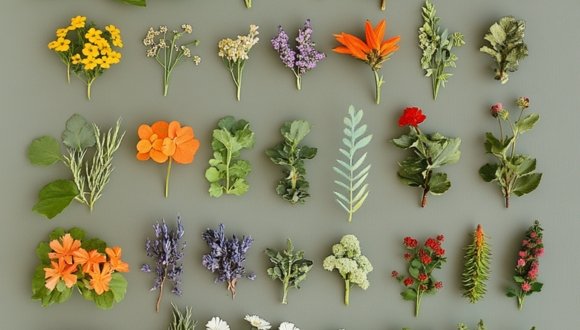אקולוגיה של צמחים

צמחים הם היצרנים הראשוניים בכל מערכת אקולוגית, לכן למחקר בתחום זה יש השלכות רחבות על הבנת תהליכים אקולוגיים, שמירת טבע, והתמודדות עם אתגרים גלובליים כגון אובדן בתי גידול, שינוי אקלים והתפשטות מינים פולשים.
תחום האקולוגיה של צמחים עוסק בהבנת הדינמיקה של מיני צמחים בטבע: כיצד הם מתפזרים, מה משפיע על שפע המינים, ואילו גורמים סביבתיים — ביוטיים ואביוטיים — מעצבים את נוכחותם. בין הגורמים הביוטיים נמנים יחסי תחרות עם צמחים אחרים, קיומם של מאביקים ואוכלי צמחים, בעוד שהגורמים האביוטיים כוללים תנאי אקלים, זמינות מים וחומרי הזנה, תנאי קרקע ועוד.
המחקר בתחום זה נעשה במגוון רמות ארגוניות: מהתנהגות של פרטים בודדים ועד להבנת דינמיקה של אוכלוסיות, חברות צומח ושלמות המערכת האקולוגית. החוקרים בוחנים שאלות הנוגעות לאקופיזיולוגיה של צמחים, אינטראקציות בין מינים, תגובות לשינויים סביבתיים, אבולוציה של תכונות צמחים, ותהליכים המשפיעים על מגוון מינים.
בבית הספר פועלות קבוצות מחקר מובילות בתחום זה, החוקרות, בין היתר, השפעות של תנאי סביבה קיצוניים על תהליכי גדילה והתפתחות בצמחים, אבולוציה של מנגנוני רבייה, אינטראקציות בין צמחים למאביקים, והתמודדות של מיני צומח מקומיים עם שינויי אקלים ומינים פולשים.
Plant Ecology (and Global Climate Change)
Plants are the primary producers in every ecosystem, making research in this field highly significant for understanding ecological processes, advancing conservation efforts, and addressing global challenges such as habitat loss, climate change, and the spread of invasive species.
The field of plant ecology focuses on understanding the dynamics of plant species in nature: how they disperse, what influences species abundance, and which environmental factors — both biotic and abiotic — shape their presence. Biotic factors include competitive interactions with other plants, the presence of pollinators and herbivores, while abiotic factors encompass climate conditions, water and nutrient availability, soil characteristics, and more.
Research in this field is conducted across various levels of organization: from the behavior of individual organisms to the dynamics of populations, plant communities, and entire ecosystems. Researchers explore questions related to plant ecophysiology, species interactions, responses to environmental changes, the evolution of plant traits, and processes that affect species diversity.
At the school, leading research groups in this field are actively investigating a range of topics, including the effects of extreme environmental conditions on plant growth and development, the evolution of reproductive mechanisms, plant–pollinator interactions, and how native plant species cope with climate change and invasive species.
Researchers in this field:
Prof. Itay Mayrose
The lab of Prof. Itay Mayrose specializes in computational biology and bioinformatics, with an emphasis on plant evolution and genomics. We use computational tools to gain insights into the fascinating evolutionary dynamics of plant genomes. In this process, we develop novel computational tools based on machine learning, reinforcement learning, and advanced probabilistic evolutionary models. Current projects in the lab include: (1) Whole genome duplications (polyploidy): Studying the consequences of whole genome duplications on patterns of lineage diversification, biogeography, and the effects of polyploidy on evolutionary patterns at the molecular and genomic levels. (2) Genome editing: We develop novel tools and algorithms for the optimal design of genome editing experiments and how to apply them in a large-scale manner, with special emphasis on crop improvement. (3) Phylogenetics: We develop machine learning methods for more accurate inference of phylogenetic trees and evolutionary genomic analyses.
Lab Website: https://www.tau.ac.il/~itaymay/index.html
Prof. Yuval Sapir
The Plant Evolutionary Ecology laboratory is studying the genetics and adaption of plants to their environment. We use ecological and genetic tools to understand the evolutionary mechanisms of plants adaptation. We study the role of pollinators and abiotic stresses as selection agents that shape flowers, as well as the effect of climate changes on plant adaptations and conservation. We use and perform ecological experimental design in controlled and natural conditions, fitness measurements and natural selection analyses, pollination biology – observations and experiments, genetic basis of flower colour, and gene expression in flower development.
Lab Website: https://labsapir.wixsite.com/labsapir
Prof. Lilach Hadany
Our lab investigates open questions in the theory of evolution, and plant bioacoustics.
Evolutionary theory projects include the evolution of genetic variation, social behavior, host-microbiome interactions, language, and aging.
Plant bioacoustics projects include plant sound emission, interpretation of plant sounds, and plant responses to the sounds of animals and plants.
Lab capabilities: Mathematical modeling of evolutionary processes; plant recording; analysis of plant sounds
Services to the industry: none
Lab Website: https://www.hadanylab.com/
Dr. Yasmine Meroz
The lab studies computational and behavioral processes in plants; how plants process sensory information about the environment in order to shape their growth morphology. We study processes such as active sensing, decision-making, memory phenomena, and interaction between plants. Our research combines both theory and experiment. As part of our experiments we design and build tailored experimental setups with the aim of interrogating how plants integrate sensory information over space and time, with an image analysis pipeline. Experiments are generally informed by predictions of mathematical models and numerical frameworks, including 3D simulations of plant growth (tropisms and circumnutations), concepts from control theory and physics, the interplay with mechanics, and cost-benefit models.
Lab Website: https://www.merozlab.com/
Dr. Michal Gruntman
In the Plant Ecology and Evolution lab, we study varying aspects of plant responses to their environment. We seek to learn the plastic responses and decisions plants make under changing environmental conditions, how plants evolve in response to these changes and the way these responses can be applied to deal with environmental issues, such as invasive species, heavy-metals, and light pollution. We perform controlled common-garden experiments using wild plants with varying evolutionary backgrounds, model species and invasive plants, to answer fundamental questions in ecology and evolution. We phenotype plant responses to environmental stresses, monitor plant movement and their pollinator visitations, analyse belowground root growth using specialized pots and root image analysis, and simulate plant light regimes with automatically light-controlled systems.
Lab Website: https://michalgruntman.wixsite.com/plantecol
Prof. Marcelo Sternberg
Sternberg’s Plant Ecology Lab addresses a diversity of fundamental questions in global climate change ecology. We generally use experimental approaches in both natural communities and agro-ecosystems to test questions at the levels of the population, community, and ecosystem. We combine strong field-work, controlled greenhouse environments, and remote sensing tools. Our lab is running since 2001, one of the world's oldest climate change experiments using rainfall manipulations. At the Matta Long-Term Ecological Research (LTER) station in the Judean Hills, we study the effects of climate change on ecosystem structure and function when exposed to extreme drought and changes in rainfall patterns
Website: https://en-lifesci.tau.ac.il/profile/marcelos



.png)


